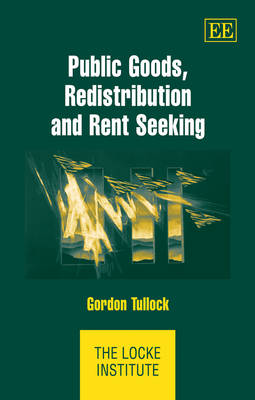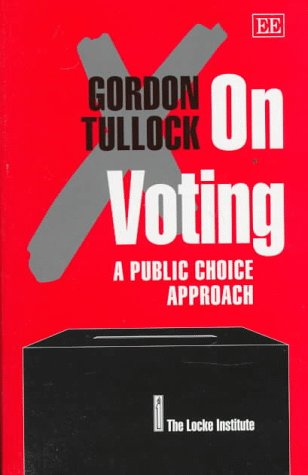The Locke Institute
2 total works
Gordon Tullock, eminent political economist and one of the founders of public choice, offers this new and fascinating look at how governments and externalities are linked.
Economists frequently justify government as dealing with externalities, defined as benefits or costs that are generated as the result of an economic activity, but that do not accrue directly to those involved in the activity. In this original work, Gordon Tullock posits that government can also create externalities. In doing so, he looks at governmental activity that internalizes such externalities.
Monarchical governments originally introduced, for the benefit of the monarch rather than to eliminate externalities, many standard government activities such as road building, war, and internal policing. Most modern governments spend more money on redistribution than on more traditional government activities. This can be thought of as another effort to reduce externalities, since suffering in the community imposes externalities on the rest of us. Rent seeking, a relatively new field in economics and political science, is closely related to externalities and to the structure of government. An analysis of rent seeking, as well as some suggestions for improving government structure, cap off this fascinating treatise.
Economists and political scientists will find this lively and readable book both stimulating and provocative.
In this important new book, Gordon Tullock, a founding father of the public choice school, provides a formal analysis of the foundations of decision making. Voting procedures are crucial to Western democratic governments but are also employed in dictatorial governments, private clubs, corporations and religious organizations. This comprehensive book examines the many techniques of voting and the different outcomes in different situations.
Gordon Tullock's analysis begins by using a simple model in which individuals vote in terms of their own preferences. It is assumed that the voters are well informed, their preferences are reasonably firm and there are no trades or bargains made among voters. These assumptions are then relaxed in order to make the analysis more realistic. Special attention is given to Arrow's work and the idea that people do not always vote according to simple preferences. The author discusses the phenomenon of 'throwing a vote away' or the possibility of an individual voting against their preference if offered something in return. After considering strategic voting, situations where voters engage in trades between one another and the lack of perfect information, Gordon Tullock examines a voter's options and the idea that individuals may rank options in degrees of their preferred outcomes. He also explores the possibility of preferences changing over time, why some issues are put up to vote and others are not, and situations where individuals voting with the same preferences, but in different voting systems, result in different outcomes.
On Voting expands present thinking in the Public Choice school and provides a forum for creating new paradigms in the school as well as changing the focus and scope of current studies. It encourages new research by suggesting areas where more work should be done. The book will be of special interest to political scientists as well as those interested in public policy and political economy.

